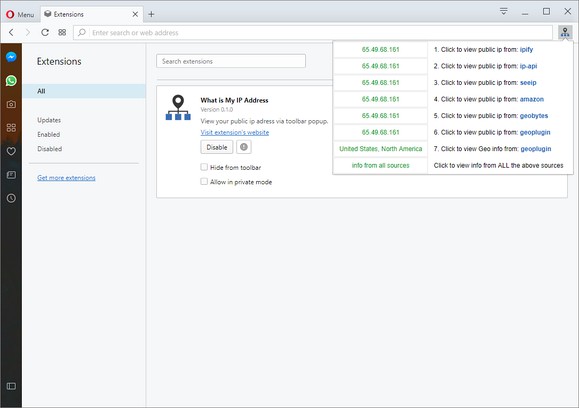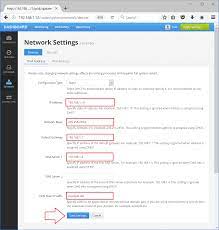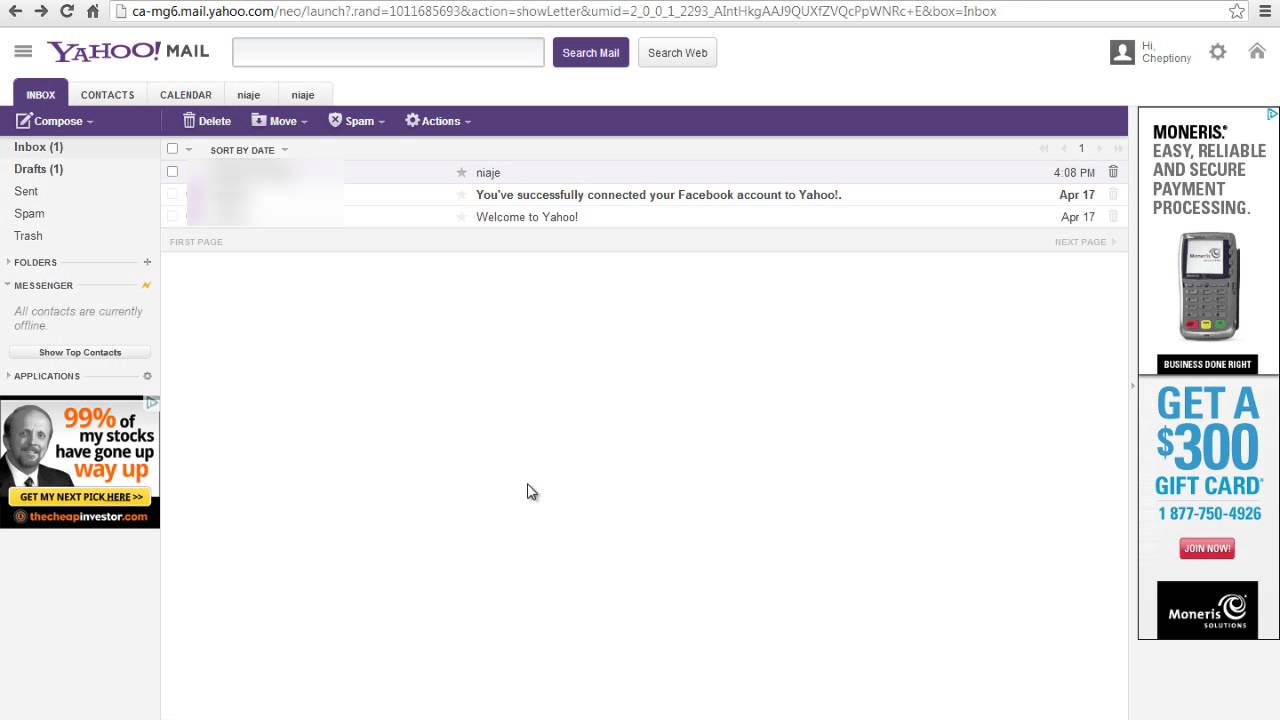Could Somebody Track My Location Using My Cell Phone’s IP …
Dear Techie,
Is it possible for someone to track my location if they had my cell phone’s IP address? Someone I know asked me for it recently and I thought it was odd.
– Unsure in Idaho
Hi Unsure,
Generally speaking, yes, but practically, it’s not very likely. When you’re connected via wi-fi, at least. It is VERY hard (nearly impossible for an average person) to determine if your wireless provider has assigned you an IP address when you’re using a data connection, and even harder to determine what it is, so it’s less likely anyone is able to track your location when you’re just using your regular data plan.
That said, virtually every time you connect to a new wi-fi network, it will assign your device a common IP address that is usually randomly chosen by the access point or router broadcasting the signal, so that variable also makes it virtually impossible for someone to guess which IP address you have been assigned. In addition to that, wi-fi routers act as a hardware firewall for your devices. They typically randomly assign you only a “local” IP address and then route the outbound traffic to a modem, which is the only device on the network which has a unique, traceable, and geo-specific IP address. This IP address will never be identified by your device or revealed to your device, however, so it is very unlikely anybody could track your device that way either. Because the router is in place when you start receiving data, the data is transmitted wirelessly to the common randomly-assigned IP address for your device on that network, which, in a sense, anonymizes your device.
So, while it is possible someone can geo-locate you by knowing your phone’s IP address (which changes every time you leave your house and come back, as well as every time your device finds a new network to connect to), it is incredibly unlikely due to the nature of cellular data networks and wi-fi routers. If you want to be extra careful when sending or receiving data, the best practice is to avoid wi-fi networks and rely only on your data plan coverage, also disable any active Bluetooth connections. A phone with Bluetooth turned on is surprisingly simple to hijack and intercept data from up to a few hundred feet away, but that is also a severe limitation, you have to be within range to intercept and at that point, there’s no need to track your location.
If you want a simple, easy, and unbelievably effective way to protect your IP address from unwanted trackers and prying eyes, try out a reliable, anonymous VPN service. Our affiliate PrivateInternetAccess has the best speed and most reliable servers of all of the ones we’ve used. Not only does it only cost as much as a cup of coffee per month, but you can also pay for your subscription with your gift card to that same coffee place;) (Or bitcoin, or pre-paid credit card, etc. ) Click the banner below to get started!
Are you worried about mobile security? Leave us a comment below about it.
Tags:
mobile security,
spyware,
Anonymity,
Anonymous,
cell phone,
smartphone,
online safety,
privacy,
internet service provider,
Ask-a-techie,
Safe Practices,
Security

What does an IP address tell you and how it can put you at risk | Norton
April 23, 2021
Cars have VINs. Humans have Social Security numbers. And our internet-connected devices have unique identifiers, too — Internet Protocol addresses, commonly known as IP addresses.
Similar to those other identifiers in our lives, an IP address does reveal a little bit about you, namely your geolocation.
Here, we’ll dig further into the meaning, purpose, and inner workings of an IP address to explain just what does an IP address tell you — and others.
What is an IP address?
An IP address is a string of numbers assigned to an internet-connected device, much like an address on a house. Your computer network uses the IP address to communicate with other computers, websites, and all parts of cyberspace.
Essentially, IP addresses are how computers on the internet recognize one another. Your internet service provider (ISP) assigns IP addresses to your internet-connected devices, and every IP address is unique. Considering every single internet-connected device has an IP address, billions of IP addresses exist.
You can think of an IP address like a membership card to enter the World Wide Web. Every device that can connect to the internet is a member of the World Wide Web — computers, laptops, tablets, mobile phones, routers, etc. — and all have an IP address. Websites and computer networks require that form of identification for you to interact with them.
Understanding an IP address and how it works aside, it’s also important to understand the purpose of IP addresses in the first place.
What is the purpose of an IP address?
An IP address can be considered a digital address for your internet-connected devices, as it reveals your geolocation to help the internet deliver content that’s relevant to you.
For example, it’s due in part to your IP address that you see local restaurants pop up when you search “sushi restaurants. ”
How to find your IP address
To find your IP address, simply Google “what is my IP address. ” It’s as simple as that: The internet provides your IP address back to you. The internet knows your IP address because it’s assigned to your device and it is required to browse the internet.
Worth mentioning is that your IP address changes every time you connect to a different Wi-Fi network or router. Online users won’t even know the difference and, generally, they don’t need to — much like how they don’t necessarily need to know how to read an IP address.
Rather, online users should be aware of what information their IP address reveals.
What information does my IP address reveal?
IP addresses do reveal your geolocation, but not your precise location like a home address and never your name, phone number, or other precise personal information. Instead, IP addresses might reveal your city, ZIP code, or area code of where you are connecting to the internet at that moment — this is why IP addresses change every time you connect from a new location or using a new router.
And it’s generally your router’s IP address that is revealed, not the IP address of your internet-connected devices such as a computer, tablet, or mobile phone that communicate with a router to connect to the internet. Sure, these internet-connected devices share their IP address with your router, but your router uses its own IP address to grant your device access to the World Wide Web.
It’s for this reason that your IP address almost always reveals the geolocation of your ISP’s nearest servers — not your physical location at all — and your IP address also reveals the name of your ISP.
Finally, to put your mind at ease, we have answers to a few common IP address FAQs regarding what information an IP address reveals about you:
What does an IP address tell you? For the most part, an IP address tells you the city, ZIP code, or area code of your ISP, as well as your ISP’s name.
What can an IP address tell you? To some degree, your physical location and also the name of your ISP.
Can IP addresses reveal your identity? No, not outrightly. However, others can piece together bits of your identity, using your IP address and by following your online activity.
How others can find your IP address — and why they want to
For others to find your IP address, it is not as easy as searching “What is [insert name]’s IP address. ” It takes a bit more legwork. But it’s also not as difficult as some might think, considering we leave our digital footprints and, in turn, IP addresses behind online with every click.
Remember, IP addresses are like your membership card to the internet and are required to enter any website and webpage on it. So, every time you click something online it’s like signing a guestbook and your IP address is the signature you leave behind. This includes social media sites, internet forums, chatrooms, and blogs you comment on. All of these platforms can view your IP address.
Also, cybercriminals can find your IP address by hacking into your home network or placing a bug in email HTML.
For a more straightforward approach to find your IP address, others might simply borrow your device and Google “what is my IP address” or inspect the header of an email address. There are also IP lookup services, whereby users can simply copy and paste an IP address into a search bar and discover a person’s geolocation.
Authorities, including, law enforcement or fraud investigators, can also use subpoenas to contact your ISP and get your IP address.
But, why would other people want to know your IP address and what would they do with it?
Is it dangerous for people to know your IP address?
Since an IP address doesn’t outrightly reveal your personal information or confidential data, it’s generally not dangerous for people to know your IP address — but it all depends on who’s trying to access it.
Consider the following parties who might be interested in your IP address and why:
Authorities to piece together illegal activities
Employers to understand where you’re spending time online at work
Advertisers to target you with relevant products and services
Blacklist databases to block access from spammers
Retailers to cross-check your geolocation with your payment method’s mailing address
Chatrooms to block inappropriate users
Subscription services to block users from accessing content unavailable in their area or region
Hackers to install malware on your devices
Cybercriminals to put you at risk of Denial of Service attacks
Criminals who, if they already know your personal information, might call your ISP and commit a vishing attack
You might even want to use an IP address to confirm whether an online friend or virtual love interest resides where they say they do
As with most things in life, people’s intentions vary.
When it comes to others trying to find your IP address, some might have malicious intentions, such as to track you. Others, however, might be watching out for you, such as a well-intentioned bank confirming a transfer request is being submitted by you.
Finally, just because someone knows your IP address does not necessarily mean they will wind up on your doorstep. Still, you might want to take measures to protect your IP address.
How to protect your IP address
The simplest and most straightforward way to protect your IP address is to use a virtual private network (VPN) because this anonymizes your online activity using encryption. It also changes your IP address completely, placing your geolocation hundreds or maybe thousands of miles from where you actually are accessing the internet.
Talk about throwing someone off your digital tail.
The bottom line: IP addresses reveal geolocations and you can prevent this
No, IP addresses are not as sacred as our Social Security numbers, but it’s still worth understanding what an IP address reveals and also how to hide your IP address if you want to.
After all, being informed is a best practice when it comes to protecting our online privacy.
Cyber threats have evolved, and so have we.
Norton 360™ with LifeLock™, all-in-one, comprehensive protection against viruses, malware, identity theft, online tracking and much, much more.
Try Norton 360 with Lifelock.
Editorial note: Our articles provide educational information for you. NortonLifeLock offerings may not cover or protect against every type of crime, fraud, or threat we write about. Our goal is to increase awareness about cyber safety. Please review complete Terms during enrollment or setup. Remember that no one can prevent all identity theft or cybercrime, and that LifeLock does not monitor all transactions at all businesses.
Copyright © 2021 NortonLifeLock Inc. All rights reserved. NortonLifeLock, the NortonLifeLock Logo, the Checkmark Logo, Norton, LifeLock, and the LockMan Logo are trademarks or registered trademarks of NortonLifeLock Inc. or its affiliates in the United States and other countries. Firefox is a trademark of Mozilla Foundation. Android, Google Chrome, Google Play and the Google Play logo are trademarks of Google, LLC. Mac, iPhone, iPad, Apple and the Apple logo are trademarks of Apple Inc., registered in the U. S. and other countries. App Store is a service mark of Apple Inc. Alexa and all related logos are trademarks of, Inc. or its affiliates. Microsoft and the Window logo are trademarks of Microsoft Corporation in the U. The Android robot is reproduced or modified from work created and shared by Google and used according to terms described in the Creative Commons 3. 0 Attribution License. Other names may be trademarks of their respective owners.

Can I Be Tracked by my IP Address – WhatIsMyIP.com®
Is it feasible to track my IP address if known by others?
Someone has my IP address, can they find me?
When you connect to the internet through your Internet Service Provider(ISP), they assign an IP address. Your IP address is similar to your mailing address, but for your computer, on the internet. While the IP address used to route internet traffic to your computer it does not reveal your location. If someone was able to get your IP address they could learn a bit about your internet service, such as which provider you use to connect to the internet, but they really can’t locate you, your home, or your office.
In some circumstances they may locate the city you are in, or perhaps a nearby city, but they will not have your physical address. Once they trace you back to your ISP they will lose your trail. While strangers may not be able to find you, your ISP knows where you are. ISPs will generally go to great lengths to protect you and your privacy but they do keep logs of your connections.
One big exception involving law enforcement. If you were to participate in illegal activities then a law enforcement agency can get a court order and submit it to your ISP to request your information. Obviously, easily finding you with law enforcement involved.
In the end, the simple answer is no, that you are unable to track my IP address. If someone was to get your IP address they can not find you. There are other ways you can be located but this isn’t one of them. Posting your name and town online via social media, more likely tracked, than by your IP address.
Frequently Asked Questions about can ip address be traced on iphone
Can IP address reveal identity?
Can IP addresses reveal your identity? No, not outrightly. However, others can piece together bits of your identity, using your IP address and by following your online activity.Apr 23, 2021
Can IP address be traced easily?
Your IP address is similar to your mailing address, but for your computer, on the internet. While the IP address used to route internet traffic to your computer it does not reveal your location. … In the end, the simple answer is no, that you are unable to track my IP address.
Can IP be tracked if phone is off?
Yes, both iOS and Android phones can be tracked without a data connection. There are various mapping apps that have the ability to track the location of your phone even without the Internet connection.Oct 6, 2021

